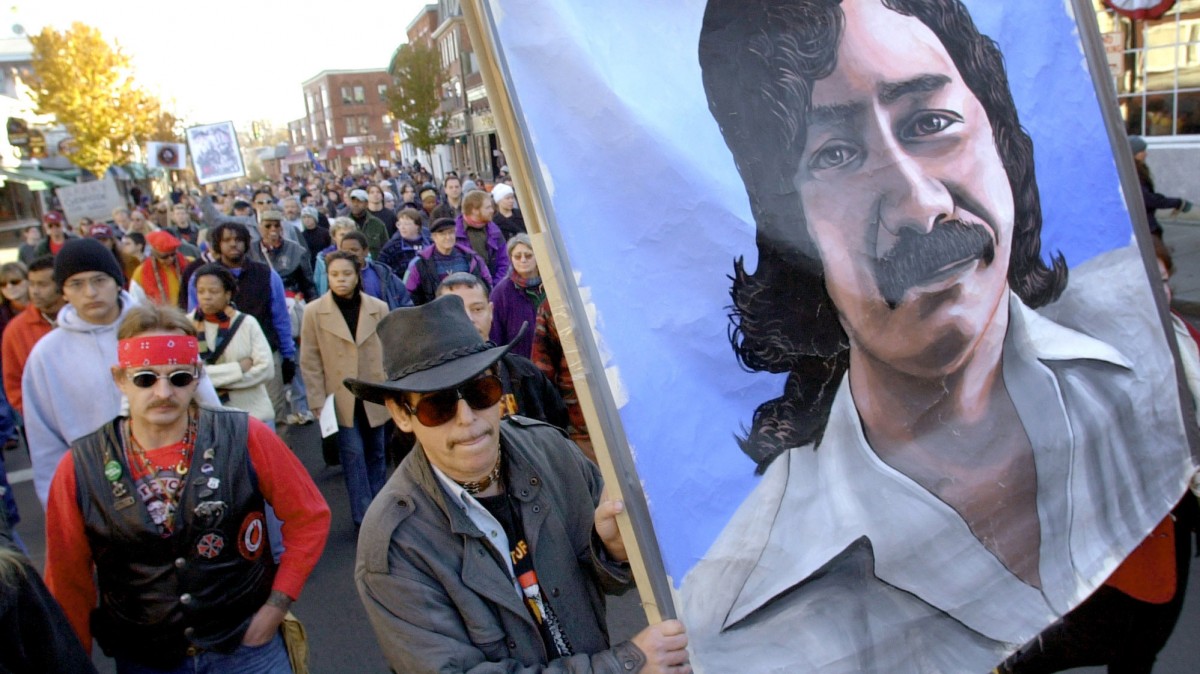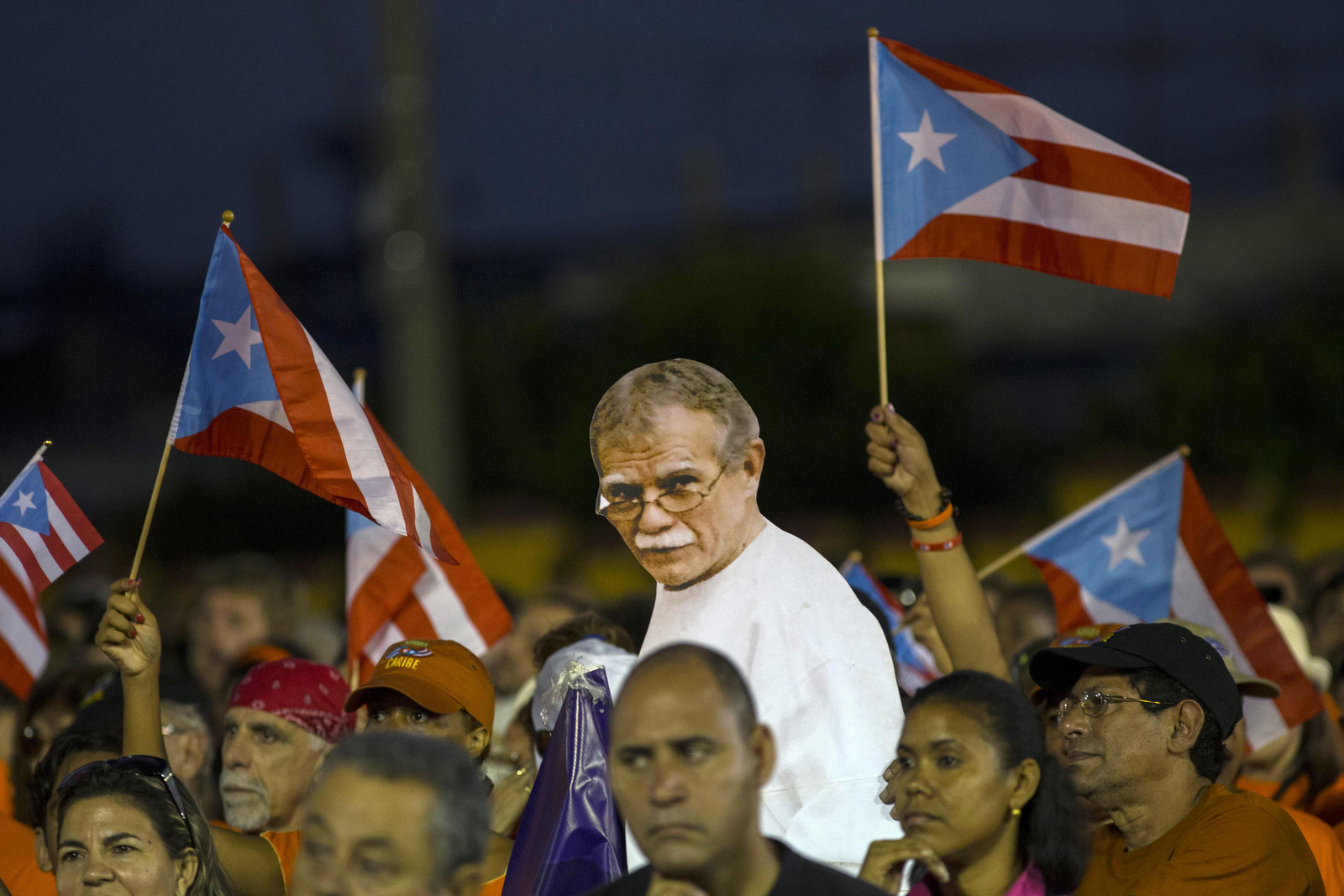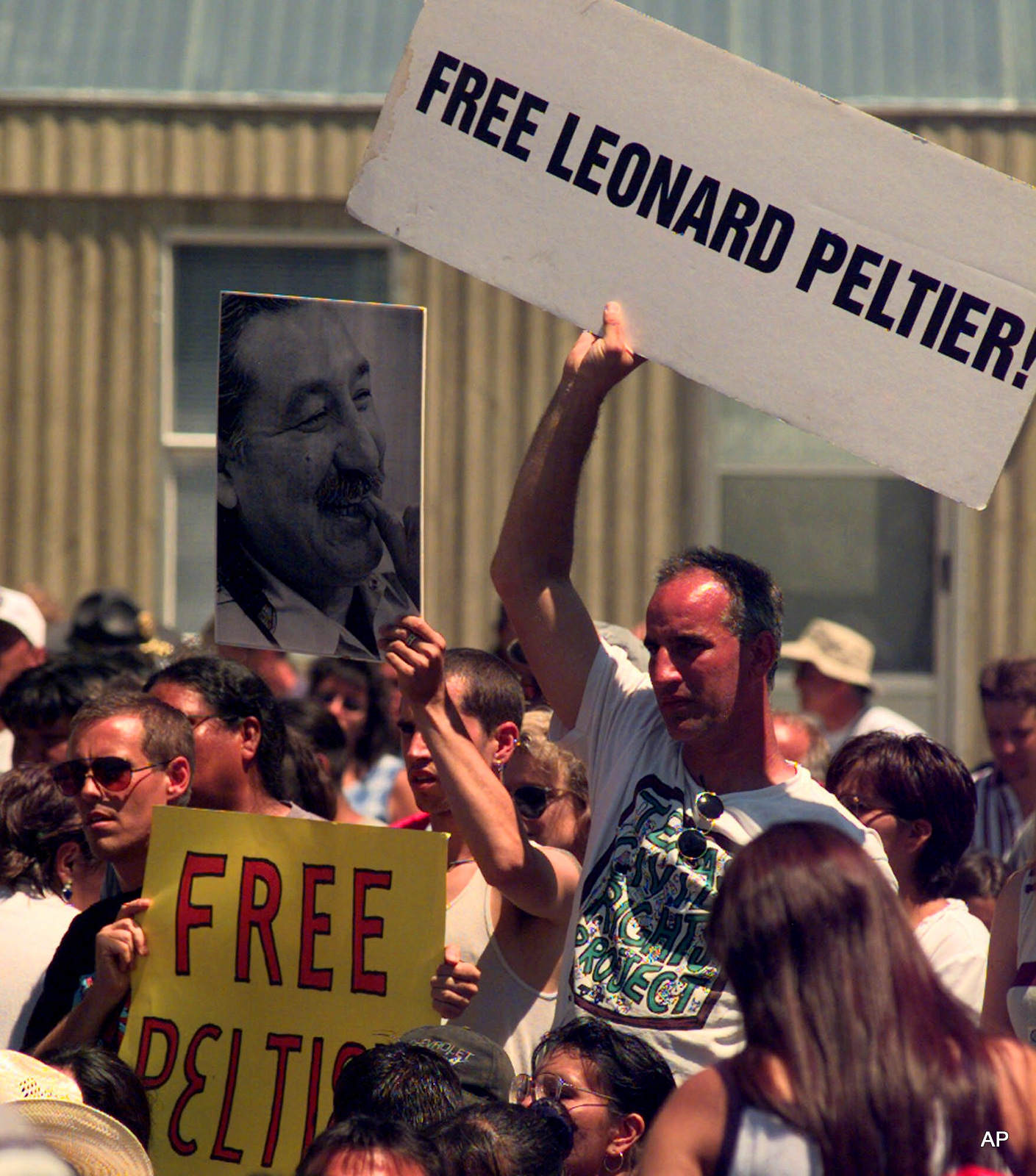
NEW YORK — As supporters celebrated the White House’s announcement on Tuesday that President Barack Obama had commuted the sentence of Puerto Rican icon Oscar López Rivera, convicted of seditious conspiracy in 1981 for his role in the pro-independence Fuerzas Armadas de Liberación Nacional, others sentenced on political charges decades ago are still hoping for clemency in the last hours of the Obama administration.
Among the cases Obama has yet to decide are appeals from Veronza Bowers, Jr. of the Black Panther Party, Leonard Peltier of the American Indian Movement, and Dr. Mutulu Shakur of the Republic of New Afrika — all imprisoned before the president enrolled at Harvard Law School in 1988.
“Leonard Peltier and Verona Bowers have been in federal prison since the 1970s, and Mutulu Shakur and Oscar Lopez since the 80s,” Laura Whitehorn told MintPress News.
Whitehorn, a former member of the Weather Underground Organization, served over 14 years in federal prison for a series of bombings against the U.S. Senate and military installations, as well as Israeli, South African, and police facilities, between 1983 and 1985.
The actions came in response to U.S. military interventions and domestic racism, and in solidarity with the Palestinian national movement and South Africa’s anti-apartheid struggle.
Today, Whitehorn works with Release Aging People in Prison, a campaign to free elderly and infirm inmates, among the fastest-growing segments of the U.S. prison population.
“It is a simple matter of human rights to grant them clemency, as what is left of the federal parole system is held hostage by law enforcement and right-wing politicians,” she said.
‘An important and underutilized tool’
Executive clemency, a presidential prerogative under the Constitution, can extend only to federal charges, not to prisoners convicted and held by state governments.
Over the centuries, its beneficiaries, under all but two presidents, have ranged from Whiskey Rebellion participants pardoned by George Washington and John Adams, to the Baratarian pirates exonerated by James Madison in gratitude for their support during the War of 1812, to Vietnam War draft evaders given a blanket amnesty by Jimmy Carter, to Roger Clinton, Jr., pardoned by his brother, Bill, after being convicted of cocaine possession.
“While not a substitute for the lasting change that can be achieved by passage of legislation, the clemency power represents an important and underutilized tool for advancing reform,” Obama wrote in a 56-page essay published by the Harvard Law Review, whose board of editors he once led, on Jan. 5. “The Framers gave the President this authority to remedy individual cases of injustice, and the Supreme Court has made clear that this power is entrusted to the President’s discretion, unimpeded by congressional limits.”
Obama used his powers of clemency sparingly for years before issuing waves of commutations, with fewer pardons, in late 2016 and early 2017, setting one-day and single-year records.
While his clemency grants have exceeded any other other president’s, they represent a small fraction of overall applications, which have also broken fresh records during his administration.
These measures have benefited over 1,500 current and former prisoners, many convicted of drug and other nonviolent criminal charges.
But Tuesday’s commutations of López Rivera’s sentence, along with that of military whistleblower Chelsea Manning who will also leave prison on May 17, marked the president’s first foray into such politically-charged convictions.
Previously, his administration had remained quiet in the face of heavy pressure over them.
After petitions on its web platform for the release of Peltier and López Rivera reached 100,000 signatures each, triggering automatic responses, the White House posted statements declining to comment “on individual pardon applications.”
A petition for Shakur, hosted on a separate site, recently passed 20,000 signatures.
Conflicts of interest

Obama’s slow response to these efforts may stem in part from the key role played in his decisions by the Office of the Pardon Attorney, which not only analyzes appeals and submits its recommendations to the president, but is also part of the same Justice Department that engineered the original convictions.
The department could be particularly reluctant to overturn its own work in cases like those of López Rivera and Shakur, respectively convicted of seditious conspiracy in 1981 and violating the Racketeer Influenced and Corrupt Organizations Act in 1988.
Federal prosecutors have used both laws to criminalize association with movements targeted by the government, critics charge, an option they might be loathe to weaken.
Former Pardon Attorney Deborah Leff resigned in March, saying she had “been instructed to set aside thousands of petitions for pardon and traditional commutation.”
In her resignation letter, obtained through a Freedom of Information Act request by USA Today, Laff wrote that “the position in which my office has been placed, asking us to address the petitions of nearly 10,000 individuals with so few attorneys and support staff, means that the requests of thousands of petitioners seeking justice will lie unheard.”
‘Stiff resistance’
Beyond the Justice Department, these prisoners face obstacles in conservative legislators, law enforcement associations and right-wing media who see them as emblematic not only of the struggles of past decades, but also of the ongoing movements — for Black, Native American, and Puerto Rican liberation — they continue to inspire after decades behind bars.
In one notorious incident, Shakur, a former acupuncturist at the Lincoln Detox Center, as well as the brother of black revolutionary Assata Shakur and stepfather to celebrated musician Tupac Shakur, was scheduled for years to be released on Feb. 10, 2016.
By all accounts, his completion of half of a 60-year sentence, handed down for conspiracy after the Black Liberation Army’s lethal 1981 robbery of a Brink’s armored truck in Nanuet, New York, should have triggered his mandatory release.
Local and national media, as well as the Bureau of Prisons’ own website, announced Shakur’s impending freedom after 30 years of imprisonment.
But after a firestorm of criticism by commentators and law enforcement officers, the BOP cancelled his release at the last minute.
Weeks later, the U.S. Parole Commission declined Shakur’s appeal, accusing him of “making a call to give a speech that was broadcast to a group of more than 200 people attending a symposium” and charging, “you routinely refer to yourself as a freedom fighter, a political prisoner, and the ‘victim’ of the government’s counter-intelligence program. Further, you end most of your writings with the salutation ‘Stiff Resistance,’ a phrase which is also prominent on your webpage.”
Free speech
While the ruling also mentioned a single drug charge in 1990, which Shakur contests, and further accusations of unauthorized telephone use, all a decade or more old, the commission made clear its reservations lay in Shakur’s “set of beliefs,” as well as his status as a political figure, far more than any alleged conduct.
“None of their references represent a threat to society or the government, or to indicate potential to re-offend; and they are insignificant as a factor of my rehabilitation,” Shakur wrote in response. “However, they are in fact evidence of the exercise of my constitutionally protected right to freedom of speech.”
“Dr. Shakur has served his time,” Watani Tyehimba, a spokesperson for the Family and Friends of Dr. Mutulu Shakur, told MintPress. “He has only had four low level incidents in thirty years of incarceration and one was for a false use of drugs (morphine) in 1990 at Lompoc.”
Tyehimba, a founding member of the Malcolm X Grassroots Movement once jailed for refusing to cooperate with a federal grand jury investigating Black groups, added that Shakur’s continuing imprisonment stemmed from the political nature of his conviction, particularly anger at “the 1979 liberation of Assata Shakur, where no shots were fired and no one was injured. It was a commando precision operation by the Black Liberation Army.”
‘The US claims not to hold political prisoners’
Longstanding resentments against legacies of revolutionary struggle also pose serious challenges to the release of Peltier, whose statue at American University in Washington, D.C., was removed by administrators in early January after a disparaging report by Fox News and a threatening letter from the FBI Agents Association.
After a deadly FBI raid on South Dakota’s Pine Ridge Indian Reservation in 1975, Peltier was convicted in 1977 of the shooting deaths of two agents. Even his prosecutor at the time, former U.S. Attorney James Reynolds, later admitted the government did not know who had fired the lethal shots.

Earlier this month, Reynolds wrote an unprecedented letter to Obama encouraging him to commute Peltier’s sentence.
“You’re not really participating in the crime yourself,” Reynolds later said of Peltier. “Just because you’re there, you’re going to get nailed.”
But with the Parole Commission entrenched in policies of vindictiveness and repression, their long shots at commutations may offer the only chance of freedom for 72-year-old Peltier, whose next hearing will not even be held until 2024, and Bowers, whose mandatory release on charges of killing a park ranger in a 1973 shootout was cancelled at the last minute in 2005.
And however unfavorable the Obama administration has been to political prisoners and the movements they represent, supporters find even less reason to hope for executive clemency from the incoming administration of Donald Trump.
“President Obama understands that although the U.S. claims not to hold political prisoners, it does,” Laura Whitehorn said. “He must also be aware that the new administration will be vicious toward political prisoners who represent, as these four men do, resistance movements against colonialism and white supremacy.”

